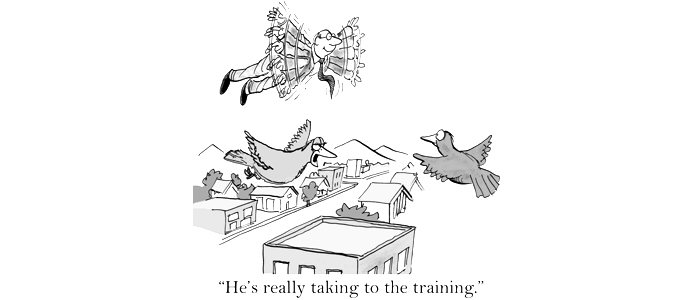What are you at work – a coach, a counsellor or a mentor? This article takes a brief look at these three very different roles and explains why it’s critical that you understand what you’re doing.
The words coaching, mentoring and counselling are used very freely in management today. But they mean different things to different people.
At best, these words mean someone is trying to help; at worst, it means they will make the situation worse because they don’t really understand what’s needed.
Being a coach doesn’t mean you tell someone what to do, being a counsellor doesn’t mean you ‘have a go’ if you’re not professionally trained and being a mentor doesn’t mean you take someone out for lunch and then talk about yourself for two hours.
It’s very unlikely that you’re trained and experienced in all 3 roles, so here are the key things that you need to know: –
Counselling
Unless you are professionally trained, then amateur counselling at work comes with a health warning attached – for you.
It can be quite flattering to be the empathetic person in the office that everyone wants to download to. Your ability to really listen is a skill well worth having (access our Listening Effectively guide). However, if you feel that someone crosses a line that goes beyond the need to be a good listener, then you should refer them to a professional and back off.
Coaching
As with counselling, the best course of action is for you to have some training on how to coach people. However, (unlike counselling) you are far less likely to get yourself into trouble if you are coaching. And arguably, once you have established some of the principles and disciplines (such as active listening, not judging and asking great questions) the best thing you can do is get lots of practice.
Mentoring
Many businesses now have mentoring programmes. When this works well it is very effective, but again it depends a great deal on the quality of the mentoring. Good mentoring is a very effective way of sharing experience and best practice, and building the confidence of your successor. However, it’s important that your ego doesn’t take over. You don’t want to end up telling your mentee exactly how you would solve a particular challenge they may have. The best kind of mentors combine coaching with mentoring so that the other person ‘owns’ the solution.
Counselling, Coaching and Mentoring are distinct disciplines. All have their place in helping people heal, grow and develop, and if you can understand the different ‘technologies’ then they are very powerful.

